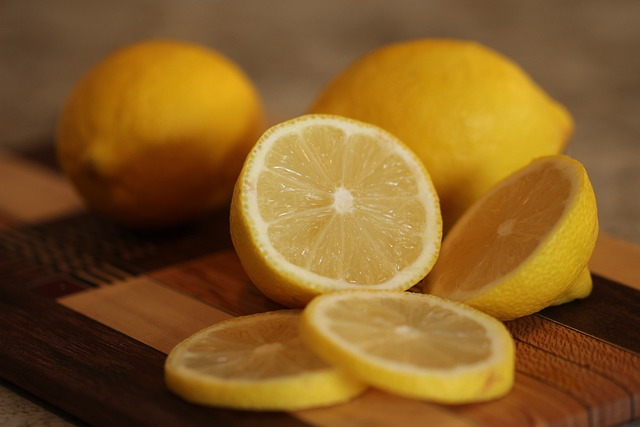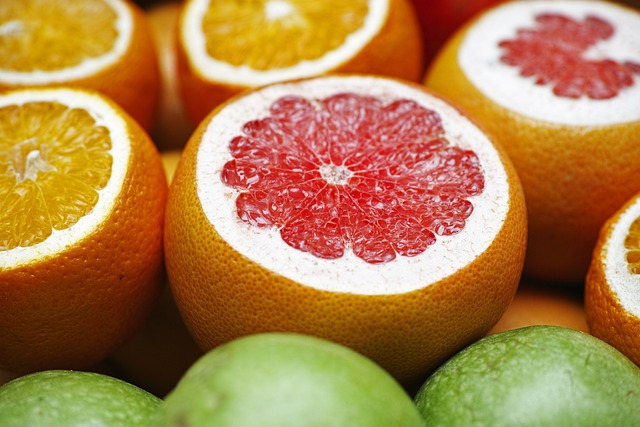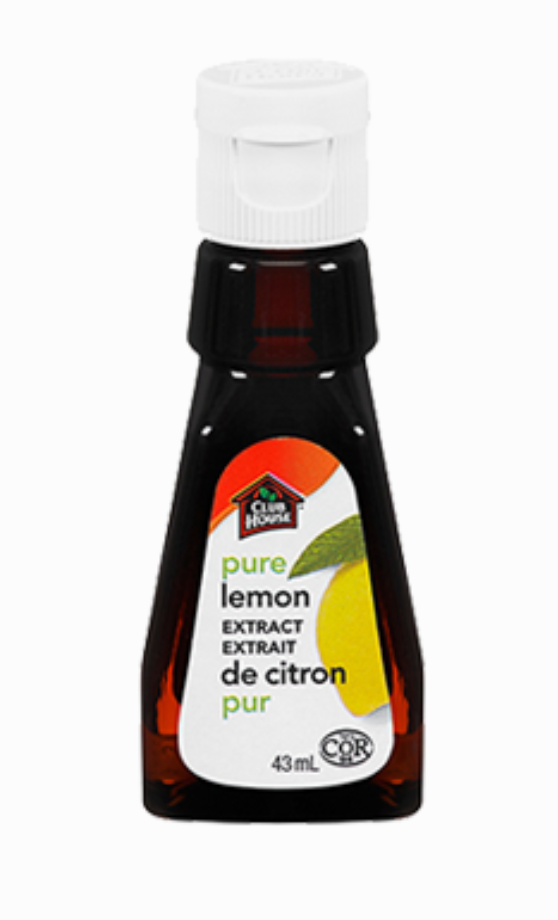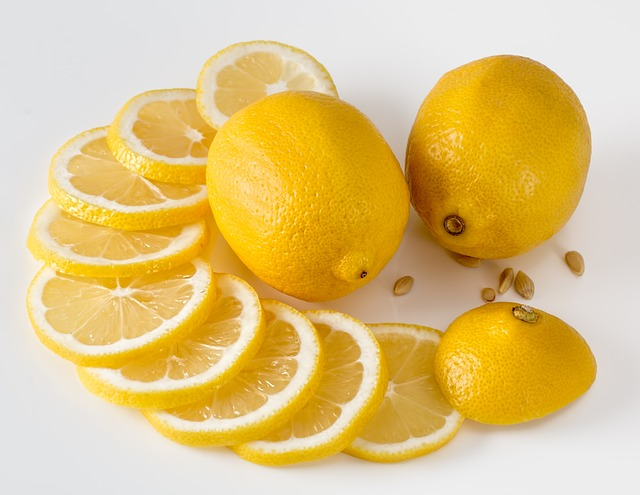
Lemons are one of the most common fruits found in kitchens and are a versatile ingredient for use in everyday cooking and baking. Whether you are preparing a classic lemon loaf, looking to whip up a freshly squeezed juice or adding some acidity to a vinaigrette, lemons are a must in your kitchen arsenal. However, many experienced cooks and bakers don’t fully understand the differences between lemon juice and lemon extract.
So, let’s explore everything to do with lemon juice and lemon extract: their common uses, some of their differences and when to use one as a substitute for the other. By the end of this guide, you will be able to consider yourself an expert on all things lemon!
What Is Lemon Juice?

Fresh lemon juice is the pure juice that is extracted from the lemon’s flesh. Lemon juice doesn’t require any other ingredients when making it. To juice a lemon, one typically uses a manual juicer or an electric citrus juicer. However, be careful to not press down too hard when juicing a lemon because the lemon rind has a very bitter flavor. No one wants that!
Common Uses For Lemon Juice

Flavor:
In regard to making homemade juice, lemon juice comes in handy for those who want to add a bit more of a kick to their juice. For example, certain types of apple juices can be very sweet, if you want to add a bit of a tang, try adding in a few tablespoons of lemon juice.
Aesthetic:
Lemon juice also plays a key role in preventing browning. Simply add in a bit of lemon juice to your juice to prevent browning and cloudiness.
Baking:
Lemon juice is great for baked goods such as lemon meringue tarts or lemon loaf.
Cooking:
Whether it be adding a bit of lemon juice to your salad dressings or splashing some on your freshly baked Seabass, the lemon flavor has an endless amount of uses when cooking.
Cleaning:
Lemon juice is a great tool if you are trying to stay away from chemical cleaning products. Use lemon juice to clean your wooden cutting board (especially after working with garlic) or mix lemon juice in with some baking soda and vinegar to create a natural all purpose cleaner. Your home will smell fresh and lemony. Thank me later!
Substitutes For Lemon Juice

Not to worry, a pronounced citrus/acidic flavor isn’t only found in lemons. Listed below are a few suggestions for lemon juice substitutes if you just ran out:
Lemon Zest:
Lemon zest and lemon peel are a great way to achieve a similar lemon flavor if you are out of lemon juice. If you were to boil some lemon zest or lemon peels in water, you could pull out some of the lemon’s natural flavor. However, this method wouldn’t be as strong in flavor as regular lemon juice.
Orange Juice:
Orange juice has a similar citrus/acidic flavor to lemon juice. It’s important to be mindful when using oranges because oranges are a lot sweeter than lemons are. Also, don’t forget to use the orange zest as well!
Lime Juice:
Just like oranges, lime juice would be a great substitution for lemon juice. I would say that limes and lemon are the most common in regards to their flavor, making limes the best substitute around.
Yuzu Juice:
Yuzu is a Japanese citrus fruit often compared to lemons. Try Yuzu juiced or the zested to achieve a similar flavor.
White Wine:
Try to add a tablespoon of either a Riesling or Sauvignon Blanc to fulfill that acidic flavor but be careful not to use too much because it might be overpowering.
What Is Lemon Extract?

Lemon extract, on the other hand, is definitely not as known as lemon juice. Lemon extract is made up of two ingredients, lemon peel and vodka. Simply remove the peel from the lemon and sit it in vodka for up to 4 – 6 weeks. The vodka will extract all of the lemon peels flavor and oils. Lemon extract does still have an acidic taste, just not the exact same taste as lemon juice. Lemon juice and lemon extract are also very different because lemon extract has a much longer shelf life than lemon juice does.
You can make lemon extract at home or you can find it in the baking aisle in your local grocery store.
Side Note:
Lemon extract is often confused for lemon oil. Lemon extract is a mix of lemon peels and vodka, while lemon oil is a mix of lemon peels and olive oil. One typically uses lemon oil for cooking and making essential oil. Definitely not the same thing.
Common Uses For Lemon Extract

Baking:
Lemon extract is mainly used for baking or cooking. Lemon extract typically plays a key role in flavoring lemon tarts, cakes, pies, pastries and fillings.
Cocktails:
Lemon extract is a great and unique tool to use when making cocktails. Try one teaspoon of lemon extract in your next martini or margarita for some added funky, citrus flavor.
Substitutes For Lemon Extract

Lemon juice can be a bit tricky when trying to substitute it. This is because lemon extract is mainly used when baking and baking requires very specific ingredients. Regardless, if you just ran out of lemon extract, give these suggestions a try. You never know, you might create something completely out of this world.
Citrus Juice:
Try using a splash of lime juice, orange juice or even grapefruit juice to replace lemon extract if you run out. Just be mindful of the fact that these juices will be missing that strong, infused boozy flavor.
Lemon Liquor:
Italian lemon liquors are probably your best bet to use if you just ran out of lemon extract. This is because you will achieve both the lemony, acidic flavor, but also grasp the alcohol flavor as well. Some of my favorite lemon liquors are Salvatore Calabrese Liqueur di Limone, Strega Limoncello di Sorrento and Pococello Limoncello.
Zest:
You can always use some water and boil it in equal parts lemon zest to make a quick, softer lemony liquid. That being said, this will not be as strong or pungent as a lemon extract would be.
Lemon Oil:
Lemon oil would only work if you are doing a substitution for a cooked or baked product. Lemon oil will not be as strong as lemon extract by may give you the lemon kick you need to achieve a similar flavor.
Other citrus extracts:
Other citrus extract may work as well. Try orange extract or lime extract to replace the lemon flavor.
Can You Substitute Lemon Juice For Lemon Extract And Vice-Versa?
A teaspoon of lemon extract vs lemon juice are two very different things. As mentioned before, lemon extract is the liquid/oil extracted from the lemon’s skin whereas lemon juice is the liquid obtained from the lemon’s flesh. They have completely different ingredients and purposes. However, the only way that lemon extract and lemon juice can be used interchangeably is if you were to be baking or cooking with them. If you are to substitute lemon extract for lemon juice make sure to do it in small portions at a time and taste it as you go.
Wrapping Up

All of that to say don’t be fooled: lemon juice is not one and the same as lemon extract. They serve completely different purposes. However, with this guide, you are fully equipped to know when to use lemon extract and when to use lemon juice. So lemon on my friends.
When life gives you lemons… try making lemon extract or lemon juice!
Leave a Reply